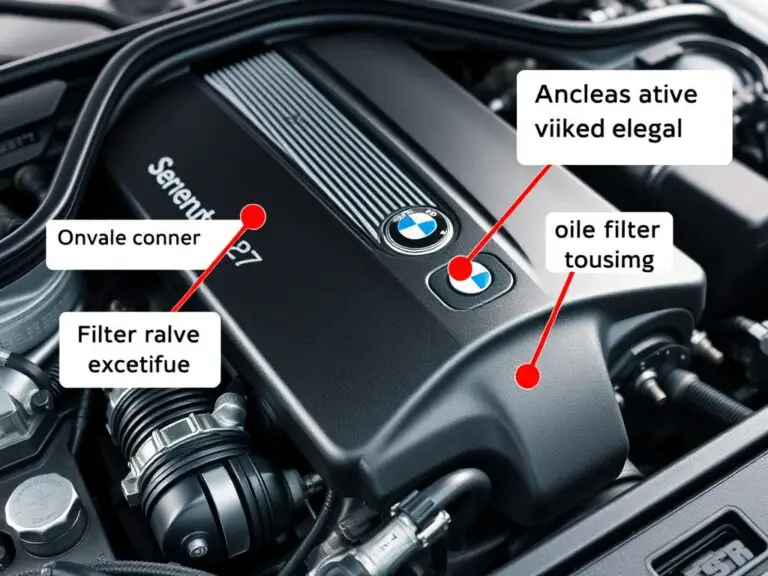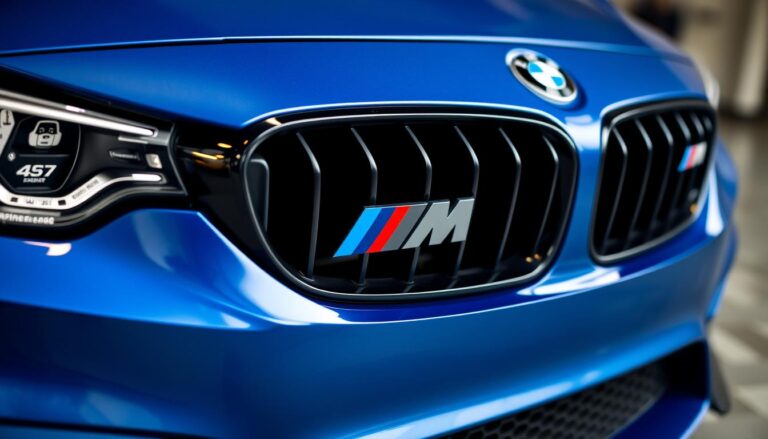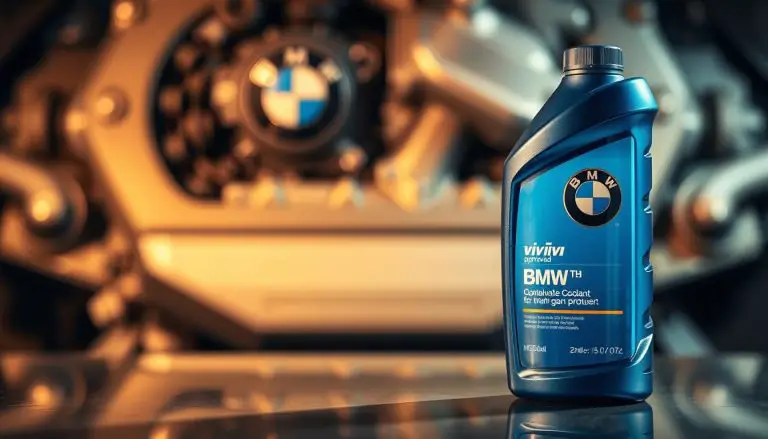The BMW M57 diesel engine, a cornerstone in BMW’s lineup, garners considerable attention from aficionados and proprietors alike. Its performance and reliability are paramount concerns, underscoring its pivotal role in the automotive discourse.
An examination into the reliability of diesel engines, exemplified by the M57, is imperative for grasping their enduring capabilities and steadfastness. Maintenance regimens, environmental conditions, and technological advancements significantly influence the engine’s dependability.
For a more nuanced comprehension, delving into the reliability of the BMW B57 diesel, as discussed in evaluating the reliability of the BMW B57 diesel, offers valuable perspectives on BMW’s diesel engine reliability.
Key Takeaways
- Understanding the significance of the BMW M57 engine in BMW models.
- Factors influencing the reliability of diesel engines.
- The importance of maintenance in ensuring engine performance.
- Comparing the reliability of different diesel engines.
- Insights into the long-term durability of the BMW M57 engine.
The BMW M57 Engine: History and Specifications
The BMW M57 engine, a pivotal power unit within BMW’s portfolio, spanned from 1998 to 2013. Esteemed for its performance, reliability, and efficiency, it garnered significant acclaim among BMW aficionados. Throughout its production tenure, the M57 underwent several enhancements, refining its capabilities and aligning with evolving emissions standards.
Development and Evolution
The BMW M57 emerged as the successor to the M51 engine, boasting enhanced performance and efficiency. Its development was characterized by groundbreaking advancements in diesel engine technology, notably the adoption of a common rail fuel system. For a comprehensive overview of the BMW M57, refer to the Wikipedia page on the BMW M57.
Technical Specifications
The BMW M57 engine’s technical specifications are noteworthy. It is a turbocharged, intercooled diesel engine, available in 2.5 and 3.0 liter displacements. The engine’s construction includes a cast iron block, an aluminum cylinder head, and double overhead camshafts. The key technical specifications are detailed in the table below.
| Specification | Detail |
|---|---|
| Engine Type | Turbocharged, Intercooled Diesel |
| Displacement | 2.5L, 3.0L |
| Cylinder Head | Aluminum |
| Fuel System | Common Rail |

Vehicle Applications
The BMW M57 engine was integrated into a variety of BMW models, including the 3 Series, 5 Series, and X5. Its versatility and performance rendered it suitable for a broad spectrum of applications, from passenger vehicles to SUVs. The engine’s reliability and efficiency played a pivotal role in its widespread adoption across BMW’s diverse vehicle lineup.
Performance Characteristics of the M57
The BMW M57 engine distinguishes itself within its category through its exceptional performance attributes. This diesel powerplant is celebrated for its formidable power output and commendable fuel efficiency, attributes that resonate with BMW aficionados.
Power and Torque Output
The BMW M57 engine is renowned for its remarkable power and torque specifications. Variants of the M57 engine yield between 235 horsepower and 286 horsepower, accompanied by torque ranging from 369 lb-ft to 516 lb-ft. This substantial power output empowers vehicles equipped with the M57 engine to exhibit vigorous acceleration and responsive performance.
Fuel Efficiency
Notwithstanding its potent performance, the M57 engine is also distinguished for its fuel economy. Diesel engines, inherently more fuel-efficient than their gasoline counterparts, excel in long-distance travel or under consistent driving conditions. The M57 engine’s average fuel economy is competitive within its class, rendering it a practical option for both everyday driving and extended journeys.

Driving Experience
The driving experience facilitated by the BMW M57 engine is marked by its robust low-end torque and seamless power delivery. This leads to a responsive and engaging driving experience, whether navigating urban landscapes or traversing highways. The M57 engine’s performance, coupled with BMW’s esteemed handling and suspension refinement, culminates in a driving experience that is both pleasurable and proficient.
| Engine Variant | Power Output (hp) | Torque (lb-ft) |
|---|---|---|
| M57D30 | 235 | 369 |
| M57TUD30 | 286 | 516 |
BMW M57 Engine Reliability & Problems
The BMW M57 engine, renowned for its performance, harbors several reliability concerns that necessitate owner vigilance. Despite its robust design, mechanical malfunctions can occur, compromising its overall dependability.
Common Failure Points
The BMW M57 engine is plagued by several common failure points, significantly impacting its performance and longevity. Grasping these issues is imperative for preserving the engine’s integrity.
Swirl Flap Issues
One of the notable afflictions of the M57 engine is the failure of its swirl flaps. These components are engineered to enhance fuel efficiency and diminish emissions at lower engine speeds. Their malfunction, whether through becoming stuck or breaking, precipitates a decline in performance and may induce engine damage.
EGR System Problems
The Exhaust Gas Recirculation (EGR) system is another critical area of concern. Intended to mitigate nitrogen oxide emissions by recirculating exhaust gases into the engine’s cylinders, EGR system malfunctions, such as clogging or valve failure, can result in diminished engine performance and elevated emissions.
Timing Chain and Tensioner Concerns
Issues with the timing chain and tensioner are prevalent in the M57 engine. Wear and tear on the timing chain tensioner can cause the chain to slacken, potentially leading to engine timing problems and, in severe cases, engine failure.
Injector and Fuel System Reliability
The fuel system, encompassing the injectors, is pivotal for the engine’s performance. Malfunctions in fuel injectors, such as clogging or failure, can lead to suboptimal engine performance, diminished fuel efficiency, and potentially damage other engine components.
Turbocharger Durability
The M57 engine is equipped with a turbocharger to augment performance. While generally reliable, turbocharger failure can occur due to factors like oil starvation, excessive wear, or manufacturing defects, leading to a significant decrease in engine performance.
Oil Consumption and Leaks
Some M57 engines may exhibit higher than expected oil consumption or leaks. This can stem from various factors, including worn piston rings, valve stem seal issues, or gasket failures. Vigilant monitoring of oil levels and prompt addressing of any leaks is crucial to avert engine damage.
| Common Issue | Description | Potential Impact |
|---|---|---|
| Swirl Flap Failure | Sticking or breaking of swirl flaps | Decreased performance, engine damage |
| EGR System Problems | Clogging or valve failure | Decreased engine performance, increased emissions |
| Timing Chain Issues | Tensioner wear, chain slackening | Engine timing problems, potential engine failure |
Understanding these common issues empowers BMW M57 engine owners to proactively maintain their vehicle’s health and address problems early on.
Maintenance Requirements and Longevity
To ensure the BMW M57 engine’s optimal performance, adherence to a rigorous maintenance regimen is paramount. Such diligence not only guarantees the engine’s dependability but also significantly enhances its lifespan.
Recommended Service Intervals
The BMW M57 engine necessitates periodic servicing to uphold its performance and dependability. Adherence to the manufacturer’s recommended service intervals is imperative. These intervals typically mandate oil changes every 10,000 to 15,000 miles, accompanied by filter replacements at analogous frequencies.
Critical Preventative Maintenance
Preventative maintenance tasks of paramount importance for the BMW M57 engine include the inspection and replacement of the timing chain and tensioner. It is also crucial to scrutinize the fuel system and injectors, alongside ensuring the turbocharger’s integrity. Regular assessments for oil consumption and leaks are indispensable.
Modifications and Upgrades for Improved Reliability
Implementing specific modifications and upgrades can significantly bolster the BMW M57 engine’s reliability. Enhancements such as upgrading to a high-performance air filter, installing a performance chip tune, and reinforcing the engine’s cooling system can notably improve performance and longevity.
Expected Lifespan with Proper Care
Proper maintenance and care can enable the BMW M57 engine to achieve remarkable mileage without encountering significant problems. It is not uncommon for meticulously maintained engines to surpass 200,000 miles without necessitating substantial repairs.
| Maintenance Task | Interval | Importance |
|---|---|---|
| Oil Change | 10,000 – 15,000 miles | High |
| Filter Replacement | 10,000 – 15,000 miles | High |
| Timing Chain Inspection | 50,000 miles | Medium |
| Fuel System Check | 30,000 miles | Medium |
Ideal Owners and Use Cases
For those desiring a synergy between performance and fuel efficiency, the BMW M57 engine presents an attractive proposition. This diesel powerplant is notably advantageous for individuals who embark on extensive journeys, thanks to its impressive torque and commendable fuel economy.
Who Should Consider an M57-Powered BMW
Primarily, the M57 engine caters to drivers necessitating a vehicle capable of handling substantial loads or towing trailers with regularity. Its suitability extends to those navigating hilly or mountainous terrains, where the engine’s torque output proves indispensable. Further, the engine’s durability and longevity make it a preferred choice for those valuing long-term reliability.
Cost of Ownership Considerations
In assessing the cost of ownership for an M57-powered BMW, multiple elements must be considered. Maintenance expenditures, fuel costs, and insurance premiums collectively influence the total expense. Despite diesel engines often commanding higher maintenance costs than their petrol counterparts, the M57’s reliability and fuel efficiency can mitigate these expenses over the long term.
Best Model Years to Target
Model years from 2004 onwards are generally more refined, having rectified some of the initial drawbacks. These iterations are likely to be the preferred selection for prospective buyers of an M57-powered BMW.
Conclusion: Is the BMW M57 a Reliable Engine?
The BMW M57 engine’s reliability record is marked by a dichotomy, with some owners witnessing prolonged service life, while others encounter specific malfunctions.
An examination of engine reliability reveals that, despite common failure points such as timing chain and tensioner issues, diligent maintenance can substantially reduce these risks.
Adherence to recommended service schedules and proactive preventative maintenance can contribute significantly to the M57’s longevity in BMWs.
Ultimately, the M57 engine’s reliability hinges on the owner’s awareness of its potential pitfalls and their commitment to its upkeep.
The decision to acquire an M57-powered BMW necessitates a comprehensive understanding of its capabilities and limitations, alongside a dedication to regular maintenance and care.
FAQ
What are the most common problems with the BMW M57 engine?
The BMW M57 engine frequently encounters malfunctions with its swirl flaps, EGR system, timing chain tensioner, and injectors.
How reliable is the BMW M57 engine?
The dependability of the BMW M57 engine is contingent upon several variables, including maintenance regimen, driving habits, and model vintage. With diligent upkeep, it can prove to be a dependable powerplant.
What is the expected lifespan of the BMW M57 engine?
The BMW M57 engine’s longevity is substantial, provided it receives adequate maintenance, with some exemplars enduring in excess of 200,000 miles without significant complications.
What maintenance tasks are critical for the BMW M57 engine?
Essential maintenance for the BMW M57 engine includes regular oil changes, filter replacements, and software updates to ensure its optimal performance.
Are there any modifications that can improve the reliability of the BMW M57 engine?
Enhancements such as upgrading the EGR system, replacing the swirl flaps, and installing a performance tune can significantly bolster the engine’s reliability and performance.
What are the best model years for the BMW M57 engine?
Model years from 2006 onwards are generally more reliable, owing to the manufacturer’s updates and improvements, which mitigate common issues.
How does the BMW M57 engine perform in terms of fuel efficiency?
The BMW M57 engine is distinguished by its commendable fuel efficiency for a diesel engine, making it an attractive option for those seeking a harmonious balance between performance and economy.
What are the cost of ownership considerations for a BMW with the M57 engine?
Owning a BMW with the M57 engine entails costs related to maintenance, fuel, and potential repairs. These expenses can be minimized through diligent maintenance and care.


